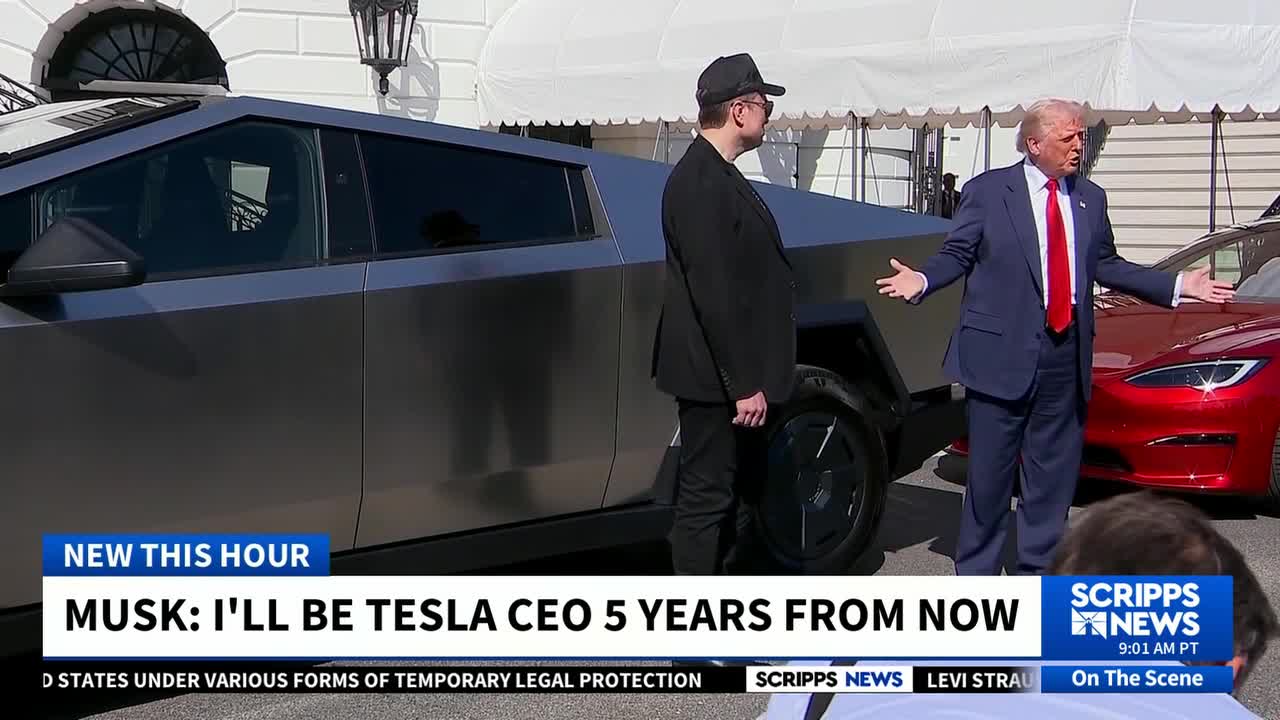Tesla's Model Y sales outpaced this model by an 11:1 ratio in Q1. Will Toyota's EV rebrand fare any better?
Sales report says Tesla sold 11 times more Model Ys for every bZ4X Toyota sold.

- Toyota sold 5,610 bZ4X models in Q1, according to EV sales report.
- Tesla sold 64,051 Model Y units in Q1.
- Toyota rereleasing electric SUV as upgraded model in 2025.
Sales numbers for the first quarter of 2025 are in — and Tesla’s performance might surprise you. While it’s no shock that the American electric vehicle giant led the EV market, the extent to which Tesla outpaced its competitors is remarkable.
Tesla sold over 11 times as many electric SUVs as Toyota, according to a new sales report compiled by Kelley Blue Book. Why is Tesla's electric SUV outselling Toyota's model by such a large margin?
Here's how the two electric SUVs compare and how Toyota intends to reinvigorate its EV nameplate.
2025 Tesla Model Y vs. 2025 Toyota bZ4X
The 2025 Tesla Model Y starts at $44,990. It has a top speed of 125 miles per hour and accelerates from 0-60 miles per hour in 5.4 seconds. The Model Y small electric SUV has a whopping 357 miles of driving range in its base form. Tesla's Model Y All-Wheel Drive starts at $48,990. It zooms from 0-60 miles per hour in just 4.6 seconds.
Toyota's bZ4X is the Japanese automaker's first small electric SUV model for the American market in recent years. The bZ4X entered the great EV race after the arrival of several popular rivals including the Model Y, Volkswagen ID.4. Hyundai Ioniq 5, Kia EV6 and Ford Mustang Mach-E.
The 2025 Toyota bZ4X starts at $37,070. Unlike the Model Y, it does not currently qualify for the federal electric vehicle tax incentive. That said, Toyota offers an EV incentive for leasing the bZ4X. It has a top speed of 104 miles per hour (all-wheel drive trim) and accelerates from 0-60 miles per hour in around 6.5 seconds. The bZ4X comes in three trims and has 252 miles of driving range. Upper trim level bZ4X models have slightly less driving range.
Why is Tesla outselling Toyota at such an astounding rate?
The Tesla Model Y and Toyota bZ4X may both be electric SUVs, but they are very different. They have completely different design languages and Toyota's model falls short in several areas. Both small electric SUVs have starting prices under $38K when you account for the EV tax incentive. The main differences are performance specs and cabin design.
The Model Y has 102 more miles of driving range than the Toyota bZ4X, which is no small figure in terms of range. Additionally, the Tesla Supercharger Network is one of the largest EV charging networks in the world. The Tesla Model Y is capable of replenishing 200 miles of range in just 15 minutes via a Tesla Supercharger.
The Model Y is quicker than the bZ4X, it has more driving range, and it has a more refined interior. U.S. News & World Reported cited "down-market cabin materials" as one of the three bZ4X cons listed in its review. In contrast, the publication praised the Model Y for its "loads of passenger and cargo space, thrilling acceleration, and deft handling".
Toyota is going back to the drawing board with its electric SUV
The bZ4X nameplate may not have been a huge success for the company, but it still has a role to play in the EV space, thanks to a major upgrade. Toyota is completely rebranding the bZ4X nameplate as the Toyota bZ, a redesigned EV with more driving range and design updates.
Toyota is addressing the main issues that car buyers have with the bZ (formerly bZ4X) with better performance specs. Its driving range is getting a huge bump to 314 miles. It also boasts up to 50% more horsepower on all-wheel drive models (338 combined system net horsepower), according to Toyota's press release.
2026 Toyota bZ new features
- Standard NACS (North American Charging Standard) port, giving it access to Tesla chargers
- Quicker charging time (10%-80% in close to 30 minutes with DC fast-charging)
- Updated interior and exterior styling
So, Toyota's bZ4x electric SUV may not pose a major threat to the Tesla Model Y, but the upcoming bZ could give it a run for its money. It is expected to hit dealers in the second half of 2025, according to Toyota. No pricing information is available at this time, but the EV will not be eligible for the federal electric vehicle tax incentive.